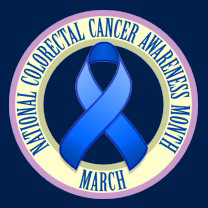Upside to screening is that colon cancer survival rate is good if it is caught early
March 23, 2009
Arnold School scientists are readying a program aimed at older Columbia area residents to raise awareness about colorectal cancer prevention and encourage participation in any of several screening opportunities.

The Community Navigation for Colorectal Cancer Prevention and Control program is a three-year effort funded by a $600,000 grant from The Duke Endowment.
Dr. Heather Brandt, a cancer researcher and assistant professor in the Department of Health Promotion, Education, and Behavior, said colorectal cancer (CRC) is one of the most common, deadly, and preventable forms of cancer.
“CRC can be prevented, and surviving CRC depends critically on the stage at which it is diagnosed,” Brandt said “When CRC is detected at an early, localized stage, the five-year survival rate is 90 percent; however, only 39 percent of CRC cases are diagnosed at this stage, mostly due to low rates of screening.”
In South Carolina, the low screening rates mean that more than half of CRC cases are not diagnosed until they have reached advanced stages.
The program will hire two, full-time community navigators to proselytize to many of the some 90,000 residents of Richland and Lexington counties in need of CRC screening. Community navigators will act as health advocates and catalysts to educate the general public, connect individuals to CRC screening services, and provide ongoing assistance and information to those who are exposed to the program.
The community navigators will work through community organizations, businesses, and churches to reach a minimum of 1,000 individuals each year of the program’s duration.
The goal of the program is to increase awareness and participation in CRC screening among males and females, aged 50 and older (African Americans 45 and older), in Richland and Lexington counties. The younger age for African Americans is because African-American men have higher incidence and mortality rates compared to their European-American counterparts.
Brandt said the program will begin by acknowledging that some CRC screening procedures are sensitive subjects. The CRC screening gold standard is colonoscopy, which can result in prevention of CRC through the removal of precancerous polyps.
However, colonoscopy is often viewed negatively because people are unaware of the benefits of the procedure and aspects of the procedure itself, such as seeing a physician prior to having a colonoscopy, fasting, bowel cleansing, sedation, the invasive nature of the procedure, and time involved. Similar conditions apply to the flexible sigmoidoscopy which examines the lower part of the colon.
Other screening options include stool sampling, one of which checks for the presence of blood, a possible sign of cancer. Another stool sample tests for DNA markers that indicate cancer.
Brandt said the program will look at its efforts as successful regardless of which screening method is selected.
The community navigators also will help direct residents to other initiatives such as the statewide SCOPE SC program, a pilot program in four areas of the state that offers free colonoscopies to uninsured persons.
Residents also will be referred to other local resources, such as Palmetto Health’s Cancer Health Initiative cancer screening services. Persons with insurance or Medicare participants also will be provided with information and referrals to an array of other CRC screening services.
Brandt is the principal investigator of the project, which is part of the Cancer Research Center of USC. Others who will work on the effort include Dr. Suzanne Swan, assistant professor in the Department of Psychology; Dr. Lucy Annang, assistant professor in the Arnold School’s Department of Health Promotion, Education, and Behavior and Dr. Swann Arp Adams, research assistant professor at USC’s Cancer Prevention and Control Program and Department of Epidemiology and Biostatistics.
Brandt said she expects the program to start in May 2009.



_01.jpg)
_02.jpg)